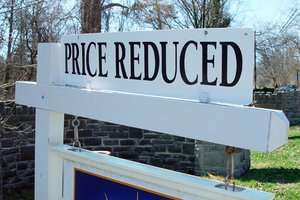Before deciding which house to buy, consider your lifestyle, current and anticipated housing needs and budget. It’s a good idea to create a prioritized list of features you want in your new home; you'll quickly discover finding the right house involves striking a balance between your "must-haves" and your "nice-to-haves."
If you love to cook, you'll appreciate a well-equipped kitchen. If you're into gardening, you'll want a yard. If a home office is a must, you’ll need a room that will provide you adequate work space. If you have several cars, you may require a larger garage. Use this list as your search guide.
Next, think about what you might need in the future, and how long you are likely to live in this particular home. If you're newly married, you might not be concerned with a school district right now, but you could be in a few years. If you have aging parents, you may want to look at homes that offer living arrangements that could accommodate them as well.
It’s important to think about your new home’s location just as carefully as its features. In addition to considering the distance to work, evaluate what matters to you in terms of services, convenience and accessibility, such as shopping, police and fire protection, medical facilities, school and daycare, traffic and parking, trash and garbage collection, even recreational facilities.
Be sure to talk to your real estate professional about where you want to live and what’s most important to you. While buyers frequently use the Internet to gain access to listings or available properties for sale, an agent brings value to the entire home buying process. He or she is available to analyze data, answer questions, share their professional expertise, and handle all the paperwork and legwork that is involved in any real estate transaction. CENTURY 21® professionals can help their clients narrow their choices by sharing market trends and local information.
TIP: It’s also important to consider the type of home that suits you best. Is it a condominium or a co-op? A townhouse or detached single-family home? Do you want brick, stone, stucco, wood, vinyl siding, or something else? Do you prefer a new home or an older one?

